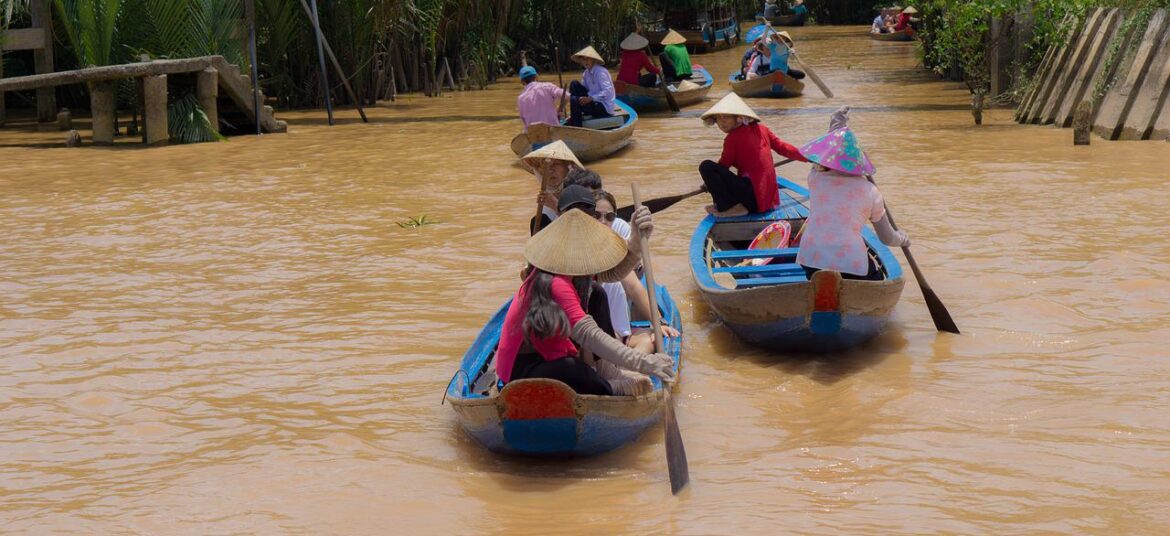Vietnam aims to expand the Mekong Delta’s economic potential while keeping the ecology intact.

Vietnam has set out an ambitious plan for the agriculture-rich Mekong Delta. The country aims to expand the area’s economic potential by 2.5 times by 2030. Public-private partnerships, new projects, and additional investment will aid the region’s growth. All this while keeping in mind the sensitive ecology of the region.
As part of the growth path, a $342 million plan to link two Mekong Delta provinces has been approved. But, climate change is a concern for farmers in the Mekong Delta because the area is prone to extreme floods, soil erosion, and drought. To ensure minimal depletion of endangered species, sustainable aquaculture has also been proposed. In addition, river embankments are also being built to prevent erosion.
However, the administration also needs to overcome challenges such as labour quality and inadequate support for new businesses. That is where a mix of infrastructure development and investment will be crucial.
Environment-friendly development
The Mekong Delta is among the most fertile regions of the world. It accounts for almost half of Vietnam’s rice production, 70% of its aquaculture, and one-third of its GDP. At the same time, it is among the most vulnerable to climate change.
The area loses 500 hectares of land every year to erosion. One province within the Delta has declared an emergency over the erosion of the coastal embankment.
Water pollution and sand mining are added concerns. To deal with this crisis, the Vietnam government has partnered with the World Bank in applying broad policies and operating activities in the Mekong Delta. The plan is to enable more than one million farmers to transition to more climate-resilient and resource-efficient ways of living.
A $26.6 million World Bank loan will enable irrigation works, roads, and power supply systems. New livelihood models, such as rice farming and farming of giant river prawns, will help regain the balance.
Bringing technology into the equation would help too. Here:
Getting the infrastructure in place
The private sector has begun work on the development of the Mekong Delta region. Here, the Netherlands has invested $50 million to partner in the areas of agricultural development, climate change risks, and water management.
Since the current expressway connecting major cities to the Delta is congested, infrastructure facilities are also being upgraded. The Asian Development Bank is working on a project to connect Ho Chi Minh City with the presently isolated branches of the Mekong River.
With lush greenery in the region, tourism projects have also found takers. Japan’s Tokyu Corp has partnered with Vietnamese realty firm Danh Khoi Group to develop a resort in the Mekong Delta.
Meanwhile, Vietnam Prime Minister Pham Minh Chinh has also nudged Mekong Delta provinces to turn their existing resources into business opportunities. A climate-resilient future for the Mekong Delta will need to involve all stakeholders so that economic progress doesn’t hinder the environment.

Thao Nguyen is ABP’s Country Manager – Vietnam. She is a dynamic leader with over 27 years of experience working for both global and local banks in Vietnam. Over the course of her career Thao has held senior leadership roles at HSBC, Citibank, ANZ, Techcombank and VIB
Stay up to update with our latest news.
Have Us Contact You
